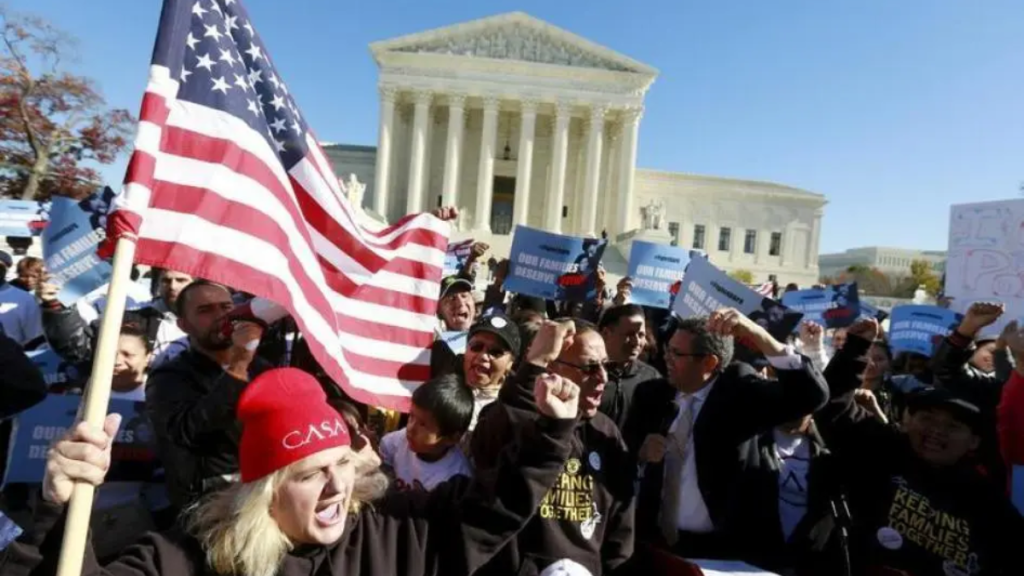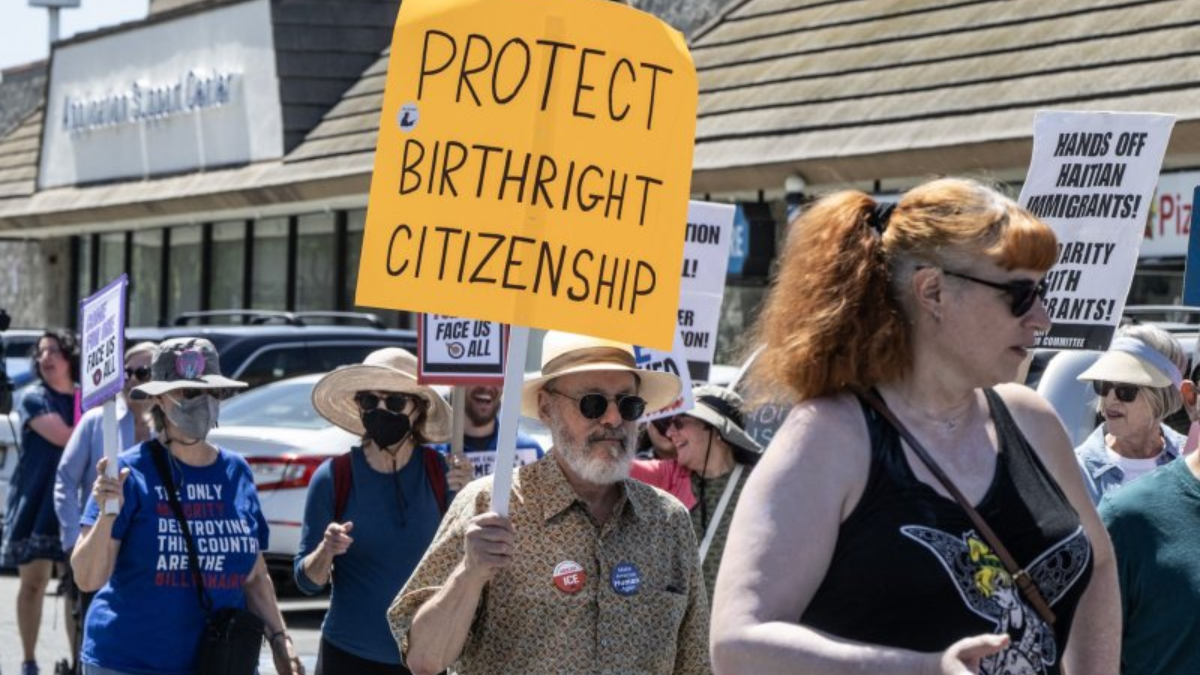In cities across the West Coast, protesters gathered this week to show support for birthright citizenship, a principle enshrined in the 14th Amendment of the U.S. Constitution.
The demonstrations come amid renewed political debate over whether children born in the United States to undocumented immigrants should automatically receive U.S. citizenship.
From Los Angeles to Seattle, thousands of advocates, immigrant families, legal scholars, and civil rights activists joined together at public rallies to reaffirm what they say is a fundamental American right. Chants of “Citizenship is a birthright!” and “Hands off the 14th!” echoed through civic centers, college campuses, and local parks.
The Constitutional Debate
At the center of the protests is the 14th Amendment, adopted in 1868, which guarantees citizenship to “all persons born or naturalized in the United States.” Known as jus soli—the right of soil—this legal principle has long been interpreted to mean that anyone born on American soil is automatically a citizen, regardless of their parents’ immigration status.
However, in recent years, some lawmakers and presidential candidates have proposed limiting or repealing this provision. Critics argue that birthright citizenship incentivizes illegal immigration and creates so-called “anchor babies”—a term widely rejected by immigrant advocates as offensive.
Earlier this year, several members of Congress introduced legislation aiming to redefine the scope of the 14th Amendment through statutory interpretation. Although such efforts face significant legal and political hurdles, the bills have reignited national conversation around immigration and constitutional rights.
Demonstrations in Major Cities
In San Francisco, an estimated 3,000 people marched through the Mission District, holding signs that read “Born Here, Belong Here” and “We Are America.” Community organizers and local officials addressed the crowd, stressing the historical significance of the 14th Amendment and warning against its erosion.
“We cannot allow fear or politics to strip away the rights of children born on U.S. soil,” said Maria Gonzalez, a representative from the Immigrant Legal Resource Center. “This amendment was written to prevent exactly that kind of exclusion.”
In Portland, Oregon, dozens of local immigrant families shared stories of their children’s lives, emphasizing how birthright citizenship provided stability, access to education, and a sense of belonging.
Similar scenes unfolded in Los Angeles, Sacramento, and Seattle, where organizers partnered with advocacy groups like the ACLU, the National Immigration Law Center, and local interfaith coalitions.
Legal and Historical Context
Legal scholars widely agree that overturning or restricting birthright citizenship would require a constitutional amendment, which is an extremely difficult process requiring approval from two-thirds of Congress and ratification by three-quarters of the states.
Historically, the Supreme Court upheld birthright citizenship in the landmark 1898 case United States v. Wong Kim Ark, which confirmed that the child of Chinese immigrants born in the U.S. was a citizen under the 14th Amendment. Modern immigration law continues to operate under that precedent.
For more on the legal basis for birthright citizenship, visit the U.S. Citizenship and Immigration Services and review educational resources provided by the Library of Congress.

Political Reactions
While the demonstrations focused on civil rights and constitutional protections, political figures have weighed in from both sides of the aisle. Some conservative lawmakers have expressed support for revisiting the scope of the 14th Amendment, citing national security and immigration concerns.
In contrast, progressive leaders—including governors of California and Washington—voiced support for the rallies and reaffirmed their commitment to protecting birthright citizenship.
“California will always stand for the rights of all its residents,” said Governor Gavin Newsom in a statement. “Birthright citizenship is not just a law—it’s a moral promise.”
A Broader Immigration Conversation
The birthright citizenship protests are part of a larger nationwide conversation about immigration reform, border security, and the rights of non-citizens. Advocates say they fear that attacks on the 14th Amendment are only the beginning of broader efforts to roll back immigrant protections.
“This is about more than just a clause in the Constitution,” said Jorge Ramos, a student activist who participated in the Seattle rally. “It’s about whether we value equality, inclusion, and justice for future generations.”
Conclusion
As debates over immigration and citizenship continue to intensify, thousands of West Coast residents have made their voices heard in defense of a principle they say defines the nation’s identity.
The 14th Amendment remains a cornerstone of American constitutional law, and for many protesters, the fight to protect it is about ensuring that all children born in the U.S. can claim their place in the American story.
For more information on U.S. citizenship laws and constitutional rights, visit uscis.gov and archives.gov.
Disclaimer – Our team has carefully fact-checked this article to make sure it’s accurate and free from any misinformation. We’re dedicated to keeping our content honest and reliable for our readers.
